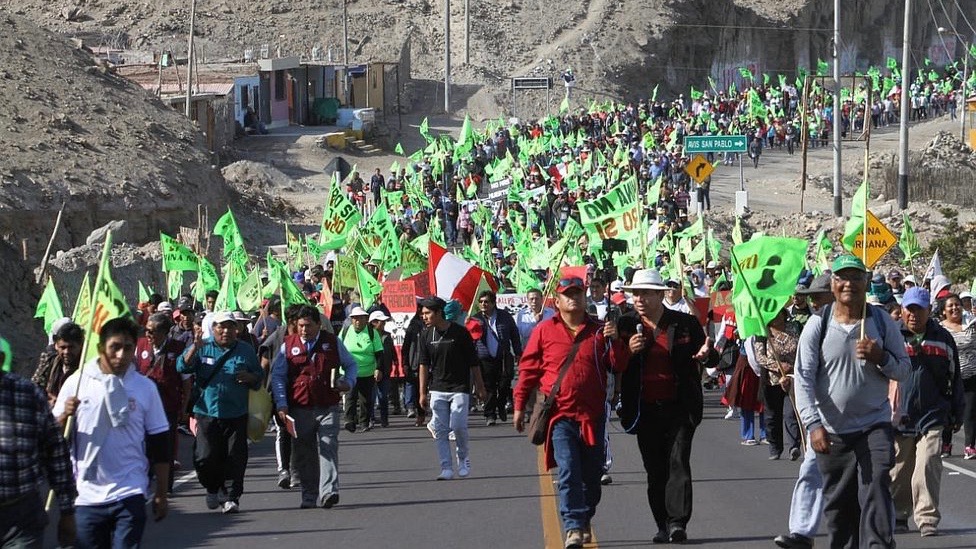Agricultural workers and social organizations in the Arequipa region, where the Tía María mine is located announced that they will begin an indefinite general strike on August 5. Their announcement comes after several incidents of police repression against protesters mobilizing against the construction of the mining project as well as the lack of a proper response from the right-wing government of President Martín Vizcarra to their demands.
The Command for People’s Struggle for the Defense of the Tambo Valley decided in its last meeting on July 29, to intensify the protest and announced the measure in order to demand a definite termination of the Tía María as well as the La Tapada mining projects. The Command is a platform formed by the Departmental Federation of Workers of Arequipa (FDTA) and several social organizations of the Arequipa region.
Teachers unions, construction and civil workers unions, Association of Transporters of Peru and the Departmental Federation of Workers of Cusco, among others, have announced that they will be joining the general strike. In addition to the regional general strike, some farmers have also decided to go on a hunger strike. A march from different cities of the region to the capital city of Lima has also been planned next week.
Since July 15, thousands of inhabitants and farmers of the Tambo Valley, in the Islay province, have been mobilizing against the government’s decision to authorize the Mexican mining company, Southern Copper Corporation (SCC), to begin the construction of the Tía María mine. The protesters are concerned about the negative consequences that the mining activities will have on the environment and agriculture.
Vizcarra’s administration has deployed over 400 officials of the National Police in the region to stop the protests. Many incidents of police repression have been registered in the last 17 days of the strike.
On July 25, President Vizcarra visited the region and announced that he would reconsider his government’s approval for the copper mining project, however he has yet to take definitive action so the strike has continued. The inhabitants, farmers, environmentalists, municipal and regional authorities are demanding a definite end to all mining activities in the region.
The Tía María mine is located 2 kilometers away from the Tambo Valley. It is home to over 24,000 people who are primarily dependent on agriculture. The vegetables and fruits produced in the valley serve more than 4 million Peruvians. Due to its proximity, at least 1,300 hectares of agricultural land is threatened by the project. The release of chemical substances such as cyanide and nitrogen from mining operations can pollute the air and water resources of the valley, which can contaminate crops, destroy forests and affect the health of the population as well as of the wildlife.
The construction of the mining project began in 2003. However, in 2011, it was put on hold after a series of protests carried out against it by the inhabitants of the region. Resistance to the project began again in 2015, when the government proposed to reopen it. In both moments of resistance to the project, the repression of protesters by national security forces caused several deaths and injuries.





